get it now
free
Weight Loss Boosters Guide & Worksheet
This guide to 13 weight loss hacks is a single source for strategies to help you lose the last nagging 10 pounds or to get you started with insider knowledge about scientifically proven ways to lose weight (many you may not have heard before). You will feel empowered with the right information to help you reach your weight loss goal!
I help busy women lose weight and increase their energy so that they can do more fun things in life.
HI, I'M KRISTINE
DOWNLOAD MY FREE RECIPE BOOK
Need to lose weight? Grab this free recipe book to get you started!
DOWNLOAD FREE 10 WAYS
TO EXERCISE WITHOUT A GYM
Having trouble getting to the gym? Grab this free guide to help you get started exercising today!

Five Proven Food Strategies for Long-term Weight Loss
Do you need to lose some weight, maybe 20, 30, 40 or more pounds? Have you had success before, but the weight always comes back and sometimes you end up gaining even more than when you started? It can be frustrating. Here are five proven food strategies for long-term weight loss.
Fiber
Eat more fiber. Why? Because our stomachs have stretch receptors that send signals to our brains that we are full. A full stomach can hold about a quart of food so to activate those stretch receptors, we need to fill it with plenty of food or else run the risk of feeling hungry, which can lead to cravings and overeating. But how do we do that without consuming too many calories? Consume more fiber. High fiber foods contain bulk that is indigestible by us but necessary for a healthy gut. So, the fiber may contain calories but we just past those through our systems without it leading to weight gain. We feel full and are more regular as a bonus. Foods that contain a lot of fiber are beans, peas, lentils, broccoli, berries, apples, nuts, seeds, and whole grains.
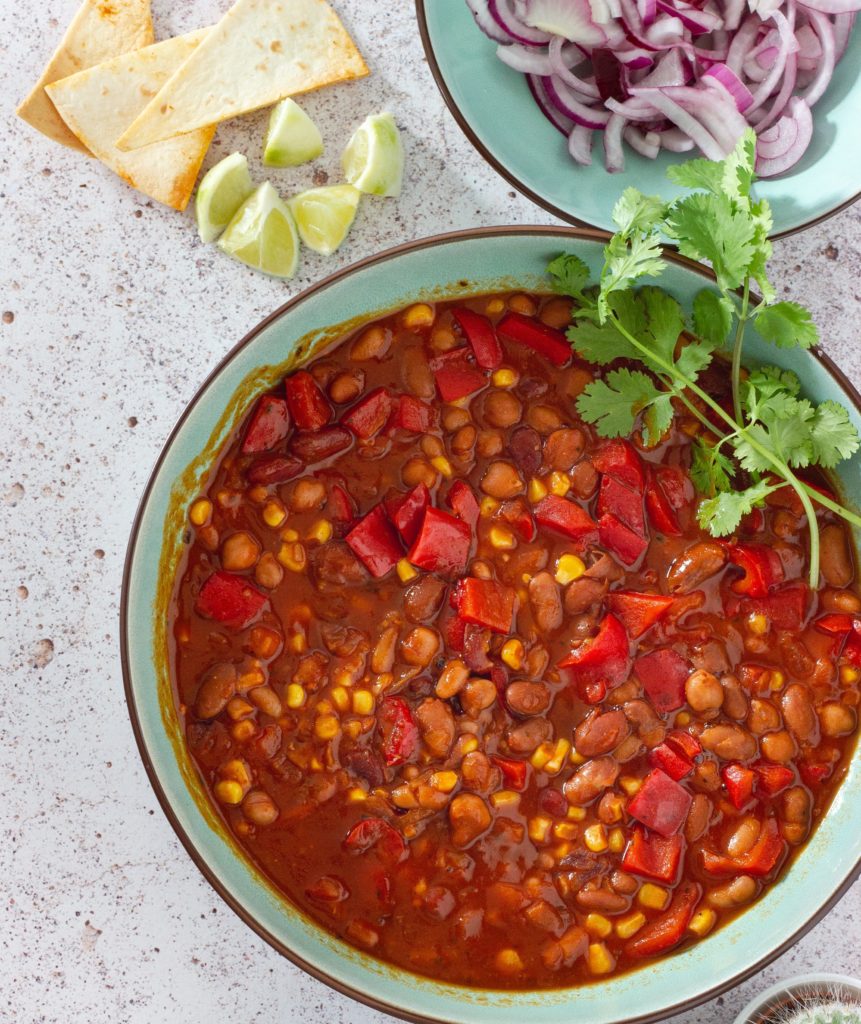
Nutrient Rich Foods
Food quality matters. In addition to having stretch receptors, our digestive systems also have nutrient density receptors. This is just a fancy way of saying that our bodies are capable of sensing if we are getting enough carbohydrate, protein, fats, vitamins, minerals, and other micronutrients. The higher quality the food that you are consuming the more likely that you will activate the signals to your brain that you are good and that you do not need to eat more. Eat more high-quality foods such as legumes, fruits, vegetables, and whole grains to activate the food quality receptors to feel satisfied. Choose organic foods whenever possible. Conventionally grown foods are not organic and use pesticides. Organic foods have been shown to have higher nutrients that conventionally grown foods.
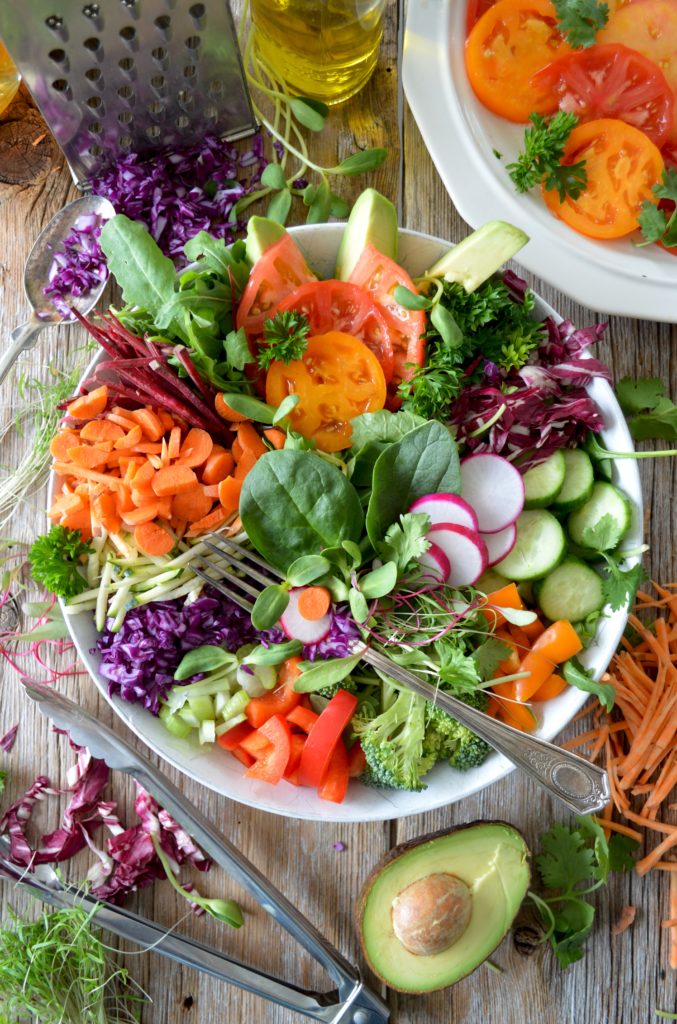
Avoid Highly Processed Foods
Another proven food strategy for long-term weight loss is to avoid highly processed foods. Highly processed foods also referred to as junk foods are those foods not in their original form. Processed foods often contain high amounts of fat, sugar, salt, and chemicals and are generally nutrient poor. These are high calorie and nutrient poor foods that are engineered to activate our ancient survival mechanisms. They trigger our dopamine receptors and cause cravings.
When you eat a high fat, salt, and sugar meal you are triggering dopamine receptors that tell your brain that you just struck gold in the calorie department (and you did). However, the quality of those calories may have been poor, and the food quality receptors will say not so fast! If you did not get the nutrients that you needed in a meal, you may crave more food to fill the gap. Also, fiber was likely missing, so your stretch receptors will tell your brain that you need to eat more. The result is a double whammy of over eating a high calorie low nutrient meal. The bottom line: Avoid highly processed foods to reduce cravings and overeating.
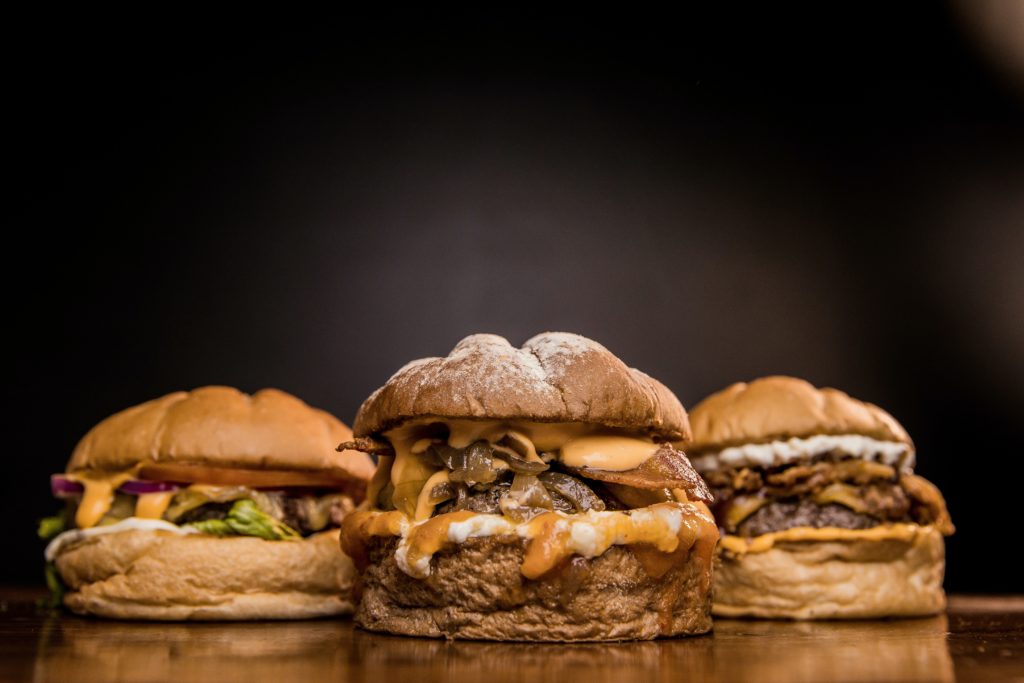

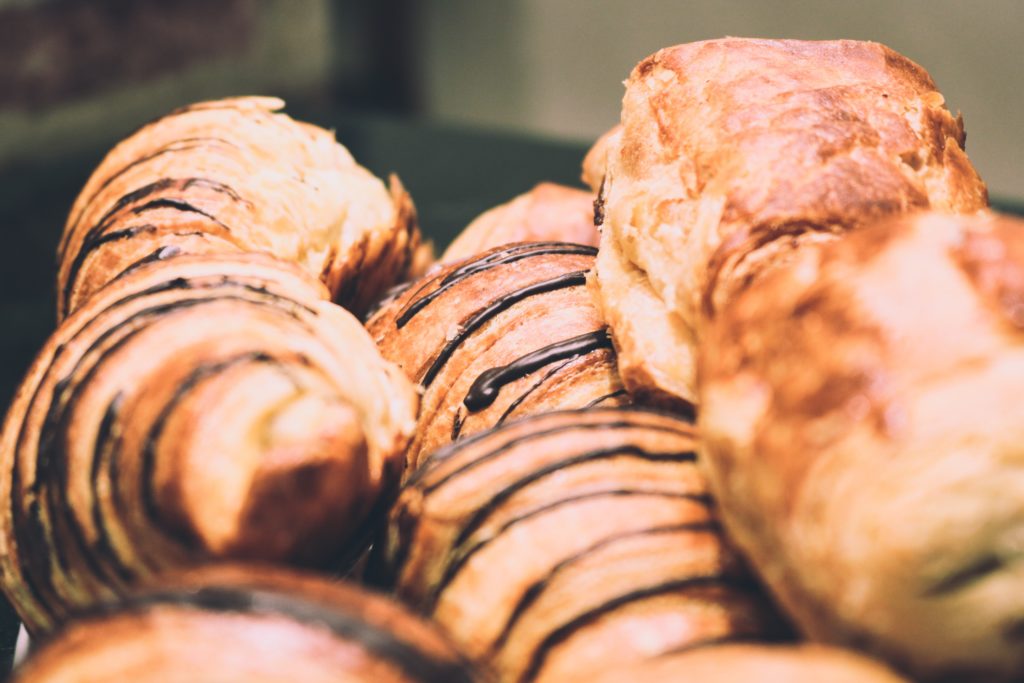
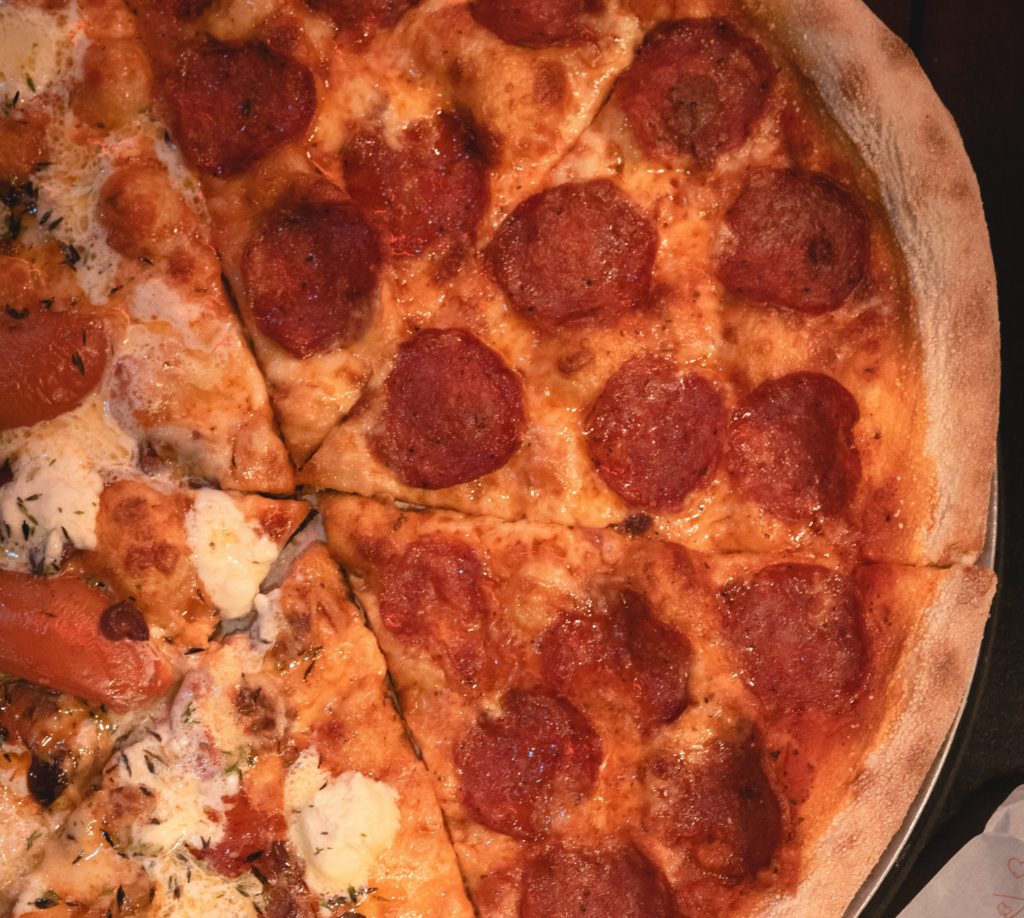
Minimize Oils
Watch out for consuming excess calories from added oils. Fat calories should make up about 25%-35% of total calories which equates to about 60 to 80 grams if you consume a 2,000 calorie per day diet. It is an essential nutrient, but we generally over consume it. Fat contains 9 calories per gram and has zero fiber so we get little to no stretch receptor benefit. Hence, we can easily over consume fat in the form of refined oils.
When trying to lose weight be careful not to consume too many excess calories from refined oils. Olive or avocado oil are examples of oils that can be included as part of a healthy diet if consumed in moderation. Just be mindful of the number of added calories you are consuming. Two areas to consider are the amount of oil in dressings and used for cooking. There are many fat free options like cooking vegetables in water or vegetable broth or by making oil free dressings.
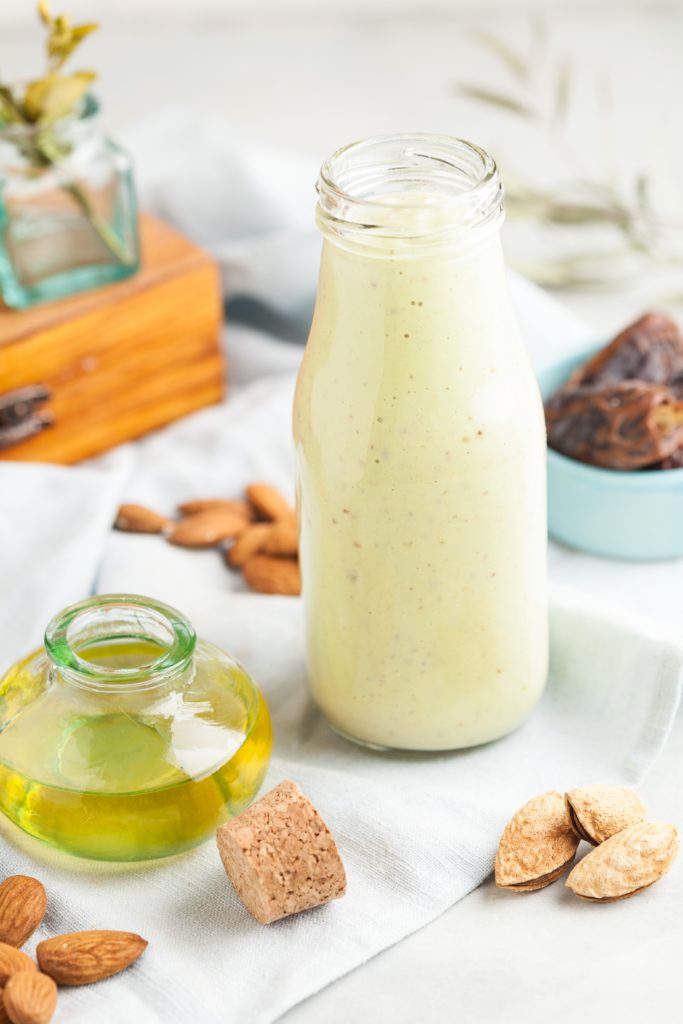
Include Nuts
The fifth proven food strategy for long-term weight loss is to eat nuts. Eating nuts and seeds provides you with protein, fiber, and healthy fats in a whole natural food. You might be wondering, what about the fat and calories in nuts? Good news on this one! Several studies have found that consuming nuts did not lead to excess weight gain. Nuts contain both fat and fiber. Researchers believe that fiber is the reason we don’t store all the calories in nuts. The result is that nuts can be consumed as part of a healthy diet without causing weight gain if consumed in moderation. See this video at Nutrition Facts.org for more information related to these studies.
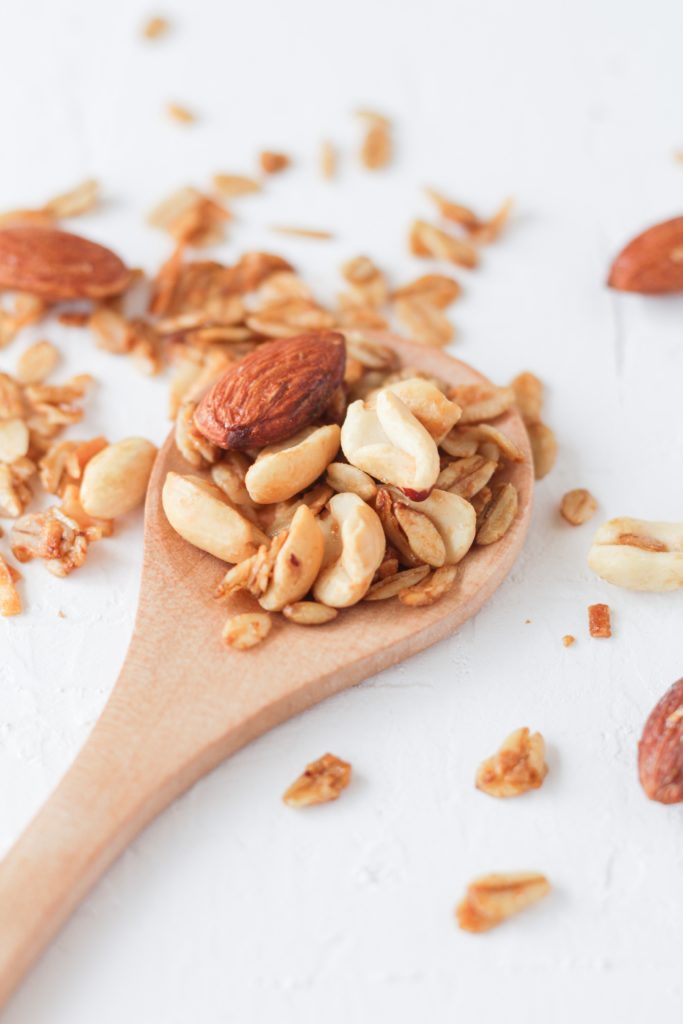
ABOUT
connect with me
contact
Disclaimer: The information on this website is for educational purposes only. It is not medical nor professional advice. Please consult your doctor or other health professional before implementing any information found on this website. Click here to view the full disclaimer in our terms and conditions of use policy.
leave a comment